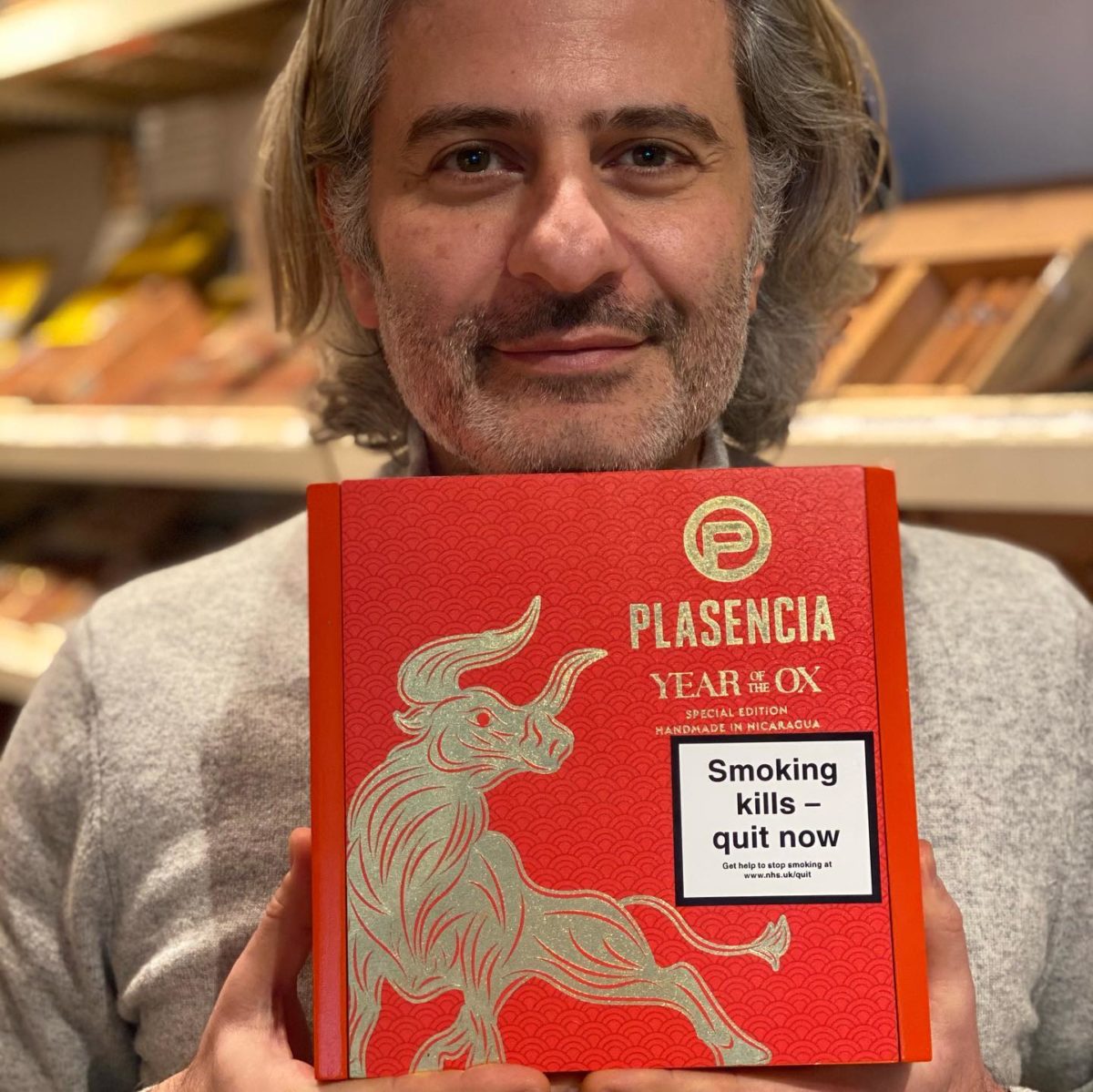Cigars have a strong image. They are the ultimate plutocrat’s prop, a symbol of wealth, luxury and maybe just a little bit of indulgence. Yet they are so often a once-in-a-blue-moon experience, a chore thrust upon a non-smoker to enforce a celebration or poorly handled and coughed through without enjoyment. That’s a terrible shame.
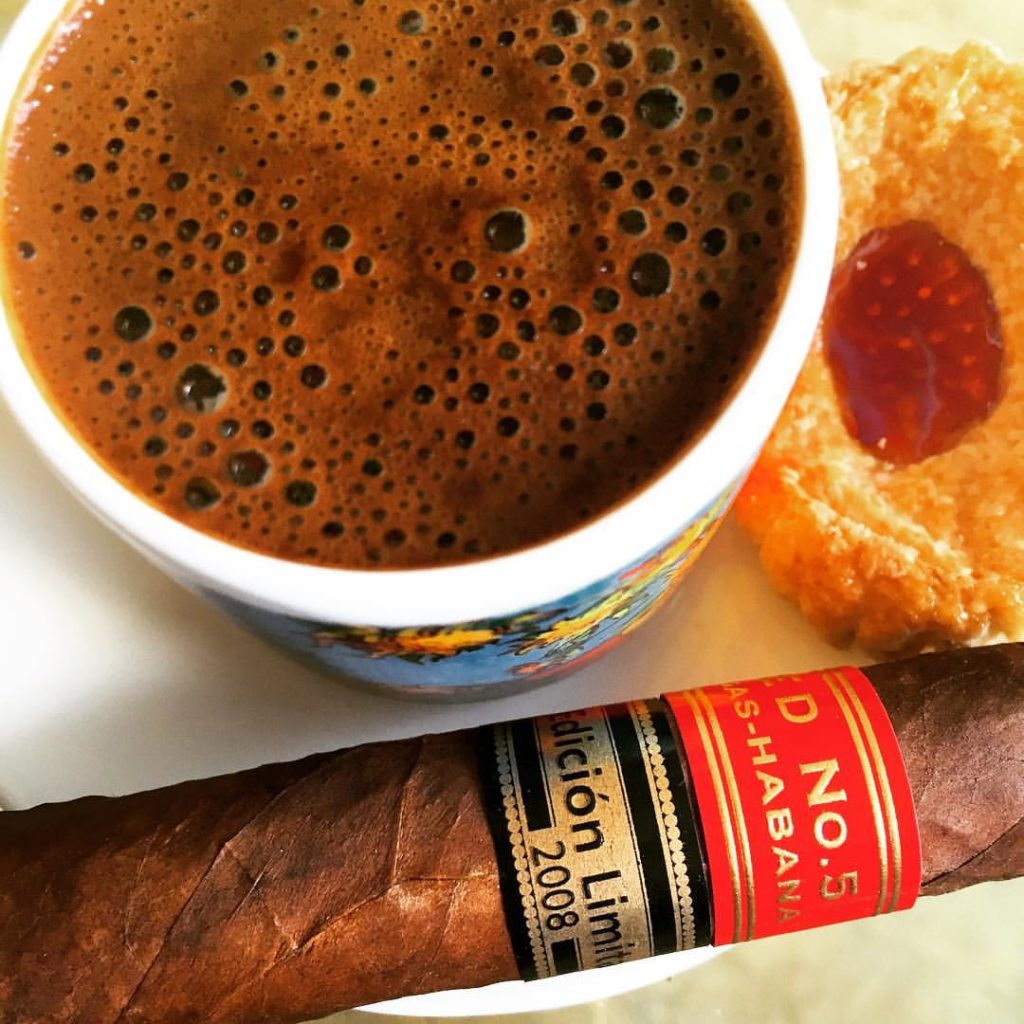
In the UK, the cult of the cigar is a discreet one. It is unusual to encounter someone for whom they are a genuine habit. In the US, it is different. There is, of course, the illicit glamour of contraband Cuban sticks; by contrast, other types of leaf are very affordable, and one could sustain a habit on a few dollars a day. Their icons of cigar-smoking are figures of bravado and charisma: Arnold Schwarzenegger, Jack Nicholson, Rush Limbaugh, and most famously, George Burns. It is as if the capitalist superpower has decided it must use weight of numbers to fight the legendary image of Fidel Castro, Cohiba clamped between his teeth.
For a visitor to the UK, the first port of call is often the Davidoff of London shop, on the corner of Jermyn Street and St James’s. For very nearly 40 years, it has been an understated palace of tobacco and its impedimenta, its stock led by the legendary Swiss brand and sold by charming, polite, well-informed staff. There is a feeling of being welcomed into a second home, a comforting atmosphere where your business is understood and respected, and you are among friends.
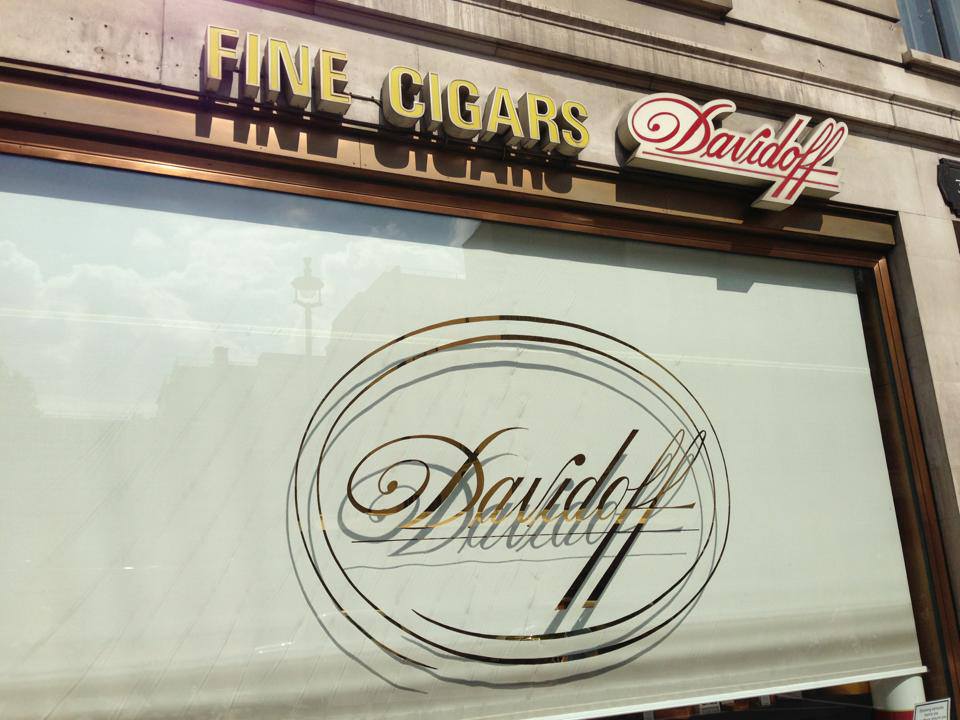
The store was founded by Edward Sahakian, an Armenian refugee from revolutionary Iran who realised his business interests—he held the national concession for Coca-Cola—had little place in the realm of the ayatollahs. He decided that a venture selling Davidoff cigars, to which he had been introduced in Geneva by Zino Davidoff himself, would be an agreeable way to earn a living. Day-to-day management is now the responsibility of Eddie, his son, whom I spoke to from his office beneath the shop.
For Eddie Sahakian, cigars were an integral part of growing up.
“All my memories, anytime we were in the car driving, dad would always be enjoying a cigar. So I was always around pipes and all the accessories at home, in his office and, when the shop opened, of course, it became a very important part of our lives, our family life, because dad was always there.”
Not that Edward Sr has disappeared from the scene. He is still regarded by clients and colleagues as “the ultimate gentleman”, and, as we talk, I can hear him moving around off-screen, not supervising the interview, exactly, but curious and on hand to provide details and explanation. Eddie describes how, after his mother suspected him (wrongly, as it happens) of being a secret cigarette smoker, his father took over and introduced him to the family business.
“Dad very wisely said OK, invited me to the shop on a Saturday to talk to him. And we sat down, he took out a Davidoff No. 2, started doing as usual, you know, he cut it and then he had this beautiful way to light a cigar with matches and, really, I was watching him do it and expecting him to take his puff. And then he handed it over to me. ‘At 16,’ he said, ‘you might be thinking about smoking things. And if you do I want to be the one who introduces you to the best of the best; if you’re going to smoke anything, make it the best.’ So my first experience was a Davidoff No. 2, I smoked probably half of it maybe.”
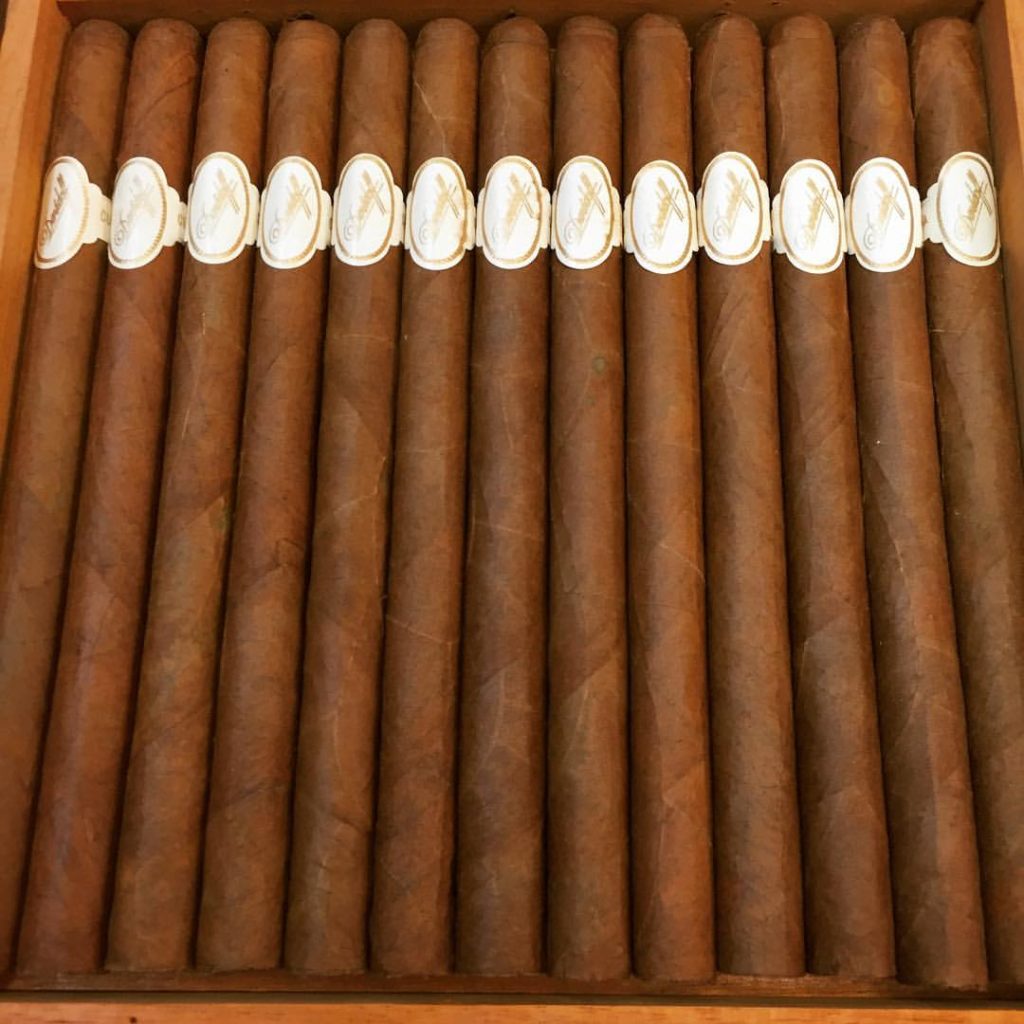
It would be a great narrative to describe some kind of lightbulb moment, or a Damascene conversion for young Eddie. In fact, it was more gradual than that, but no less telling in the long term.
“Years later, probably in my early 20s—20, 21—I started working with my father again in the shop, more and more full time, and that’s when I fell in love properly… I started to smoke them myself. My palate had matured, perhaps. From there on, it was certainly my love affair with cigars that started properly then.”
The firm, and the Sahakians, place enormous store in the welcome they provide to anyone who comes into the store. Eddie thinks this is both good business, encouraging customer loyalty, and also a reflection of cultural instincts hardwired into his family.
“Culturally, you know, Armenians, like Mediterraneans, are very guest-host conscious. Inviting people into your home is a crucial part of our culture, and giving them everything that’s your best is a very important mark of respect. Your guests will always get the best food, the best drink, the best seats, the best accommodation, and you will be second. And so that approach was just applied very naturally.”
The style of Sahakian Sr. pervades the store. His son points to charm, service and attention to detail as key ingredients in the appeal of Davidoff of London. Staff are carefully chosen: hardly any are hired from CVs submitted, none through agencies, and they rely instead on personal recommendations, because that creates what Eddie calls a “feedback loop”. Essentially, if you have been recommended to Davidoff, you will do your best to impress so as not to let down whoever put you forward.
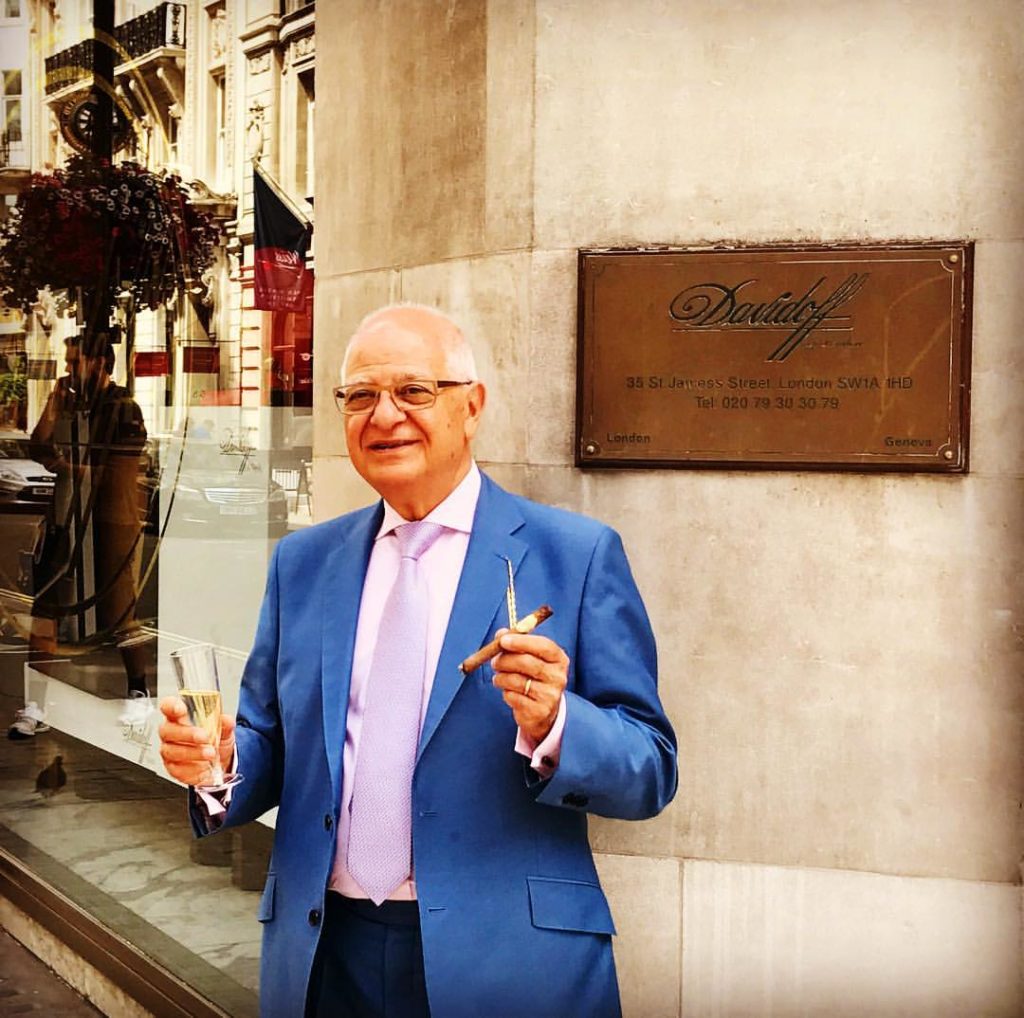
Being a smoker is not, however, essential. It is helpful if the staff can talk customers through the products from personal experience, but what is most important is “a natural love of cigars and tobacco. That’s, I think, important… you must have the interest in the product. Because you cannot fake an interest in a product.”
I was interested to know more about Davidoff’s customer base. In the UK, though less so in the US, cigars are stereotypically the preserve of older men, with equal emphasis on each word, and Eddie confirms that, 30 or 40 years ago, this was representative: “someone in their late 40s, early 50s, male, reasonably affluent,that would pretty much tick the box for the majority of our customers.”
There has been a change in that demographic, though cigars are still by no means a product with universal appeal.
“We see many more young smokers coming in, first-timers straight out of university or still in university, we see, not as many as I’d like, but we see more ladies, and across the age groups. And what I like about maybe an unintentional consequence of the legislation around tobacco is, if you’re going to be a cigar smoker, you really invest quite a lot of time to learn about it, to know about it.”
The Davidoff shop is not just for selling cigars. Like many (predominantly male) habits, cigar smoking comes with an array of accessories and accoutrements (what eBay calls “tobacciana”), but the Sahakians have also developed a market they perceived for goods which share a similar customer base.
“It was really important to have all the toys, beginning with cigars and pipes, and all the bits you need around that, which is a surprising array of some very tacky and some very well-made toys: Beautiful Dunhill, DuPont lighters, the cutters that come with that. With pipes, you can start with a very simple corn cob pipe for £5 and go all the way up to a £10,000 pipe, with a beautiful straight-down stem, and so on. And everything in between. So our approach at that time was to have it all. And the ‘best of’ if we could, but also accessible.
“And then it expanded a little bit from that point. The umbrellas and walking sticks that we also stock didn’t really happen because we thought there’s a gap in the market. It’s just people approached us and said, Have you got an umbrella? We thought, well, you keep getting asked, let’s take a few umbrellas. And we got the Fox umbrellas, a wonderful British company. And next thing we knew, it grew and grew and grew. And so of course, it was worth our while to expand the range there. The walking sticks are not an important part of our business. But you’d be shocked how many walking sticks we sell. Whisky and spirits, that was a more natural addition to our core products.”
Luxury retailers do not exist in isolation, of course. Jermyn Street is a unique ecosystem for those who like to live well, and along its length you can buy an eccentric but somehow coherent range of products to satisfy a wide range of tastes. Eddie thinks this is a very important part of Davidoff’s positioning, both physically and in the market.
“There’s nowhere else where, as a man, you can turn up, start at one end and end up at the other, and pretty much cover every sartorial element, and anything else you might need, including the cheese. That’s unique. I mean, I don’t know, do you, any other such streets anywhere else in the world?”
Burning issues
The financial crisis of 2008 is still making its effects felt, and the restrictions of the Covid pandemic have added to the woes of luxury retail. Davidoff offers a comprehensive mail-order service for its cigars, but the loss of footfall, especially passing trade, is a problem which will have to be overcome as the economy begins to right itself.
One response to the financial crises was quantitative easing and the availability of credit says Eddie: “Money became so cheap for anyone holding assets, anyone with wealth, there was so much more of it. And that raised the price of a Rolex, you know, the price of a good car, the price of fine wine, art, of course, to some degree, of a good bespoke suit. All these things have gone up spectacularly in the last 12 years.”
Whether this will last is uncertain. Will what Eddie calls “a real experiment in financial and social engineering, unintentionally,” continue, or will there be a “rebalancing” at some point? One critical factor is rent. Davidoff of London occupies prime real estate, and, as an independent, Eddie is worried that he may be priced out of the market by the major luxury conglomerates like LVMH.
“The big landlords like the Crown Estate and Great Portland Estates and others have come to realise that, but that’s not yet reflected in their rent demands. So I hope in the next two, three years, between Covid and a sense of sustainable, interesting High Street and good-quality High Street. That’s the big risk I foresee.”
The loss of individuality and character weighs heavily on the mind of someone almost born into Jermyn Street royalty.
“If rents are allowed to just go up exponentially, then eventually your only offering will be more Gucci, more Louis Vuitton. You know, the odd Milan shop. And perhaps anything linked to a watch superstore, maybe a Patek unit? And that’s it, which is lovely, but there’s only so many you need in London.”
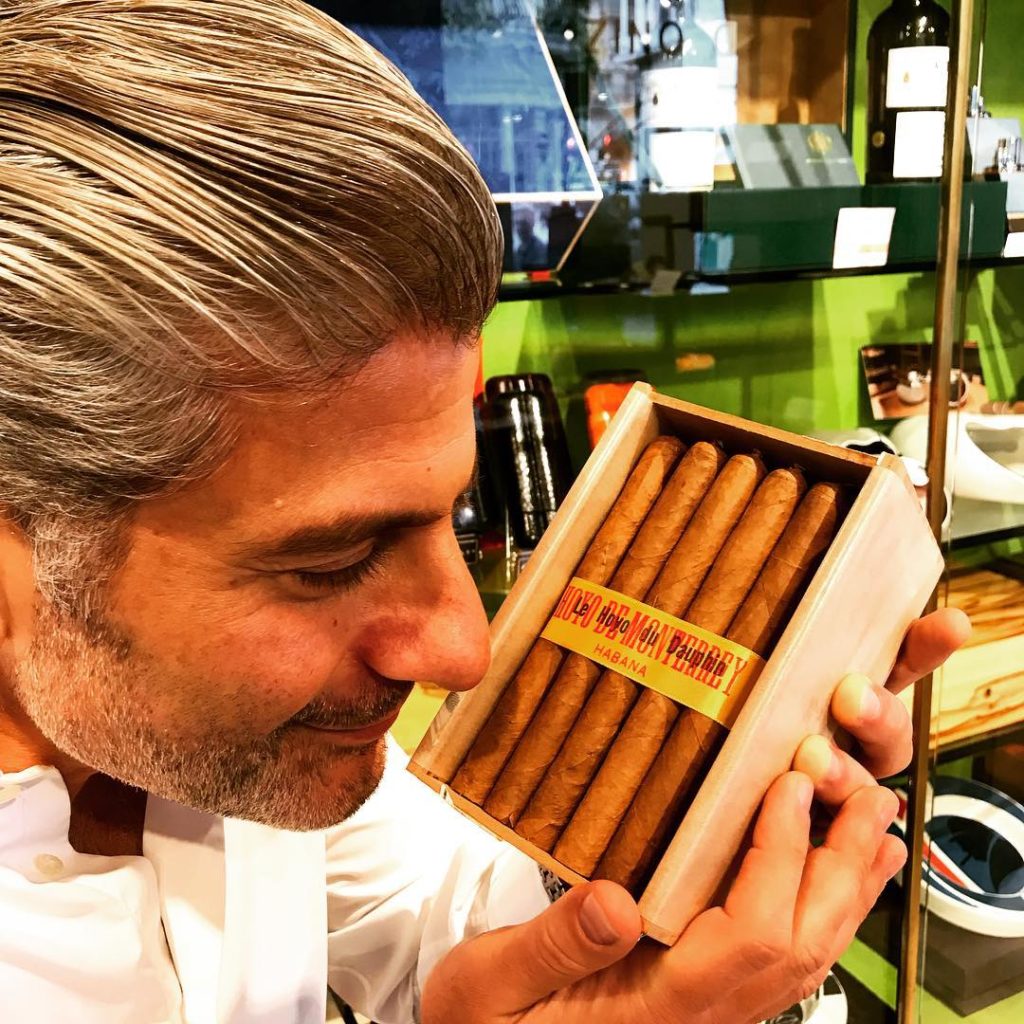
The last question, of course, had to be his favourite cigar. Unsurprisingly, this took some time to pin down (his enthusiasm bubbles over). His most frequent is—loyally—the Davidoff No. 2 with which he began his smoking career, but for his ‘desert island’ cigar, he points to a Davidoff Dom Perignon (now discontinued) from the very early 1990s or a Cohiba Siglo VI Gran Reserva 2009, both very high-end smokes. For those with the time to devote to it, he suggests a Hoyo de Monterrey Double Corona, which will detain the smoker for well over an hour.
Zino Davidoff, the Russian-born Jew who opened his tobacco shop in Geneva in the 1930s, was known as the “King of Cigars”. It would be a hotly contested title now, and Eddie would no doubt defer to his father, but Sahakian may at least be the crown prince. How long will the industry last? Given the direction of travel in public health, further restrictions may be on the horizon; maybe even, one day, outright prohibition. Until then, Davidoff of London, on the corner of Jermyn Street and St James’s Street, remains an outpost of Armenian hospitality in central London, a carefully managed and elegantly presented business. If anyone can survive, the Sahakians surely can.
Davidoff of London hopes to re-open on 12 April 2021.

